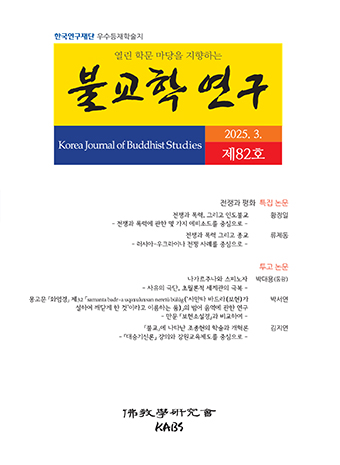Abstract
References
Sorry, not available.
Click the PDF button.
Information
I have inquired about how the universal principle can be acquired, and what is the philosophical context of that in East-Asian Buddhism. The concepts of 'nirvāṇa’, ‘buddha-dhātu’ and ‘Xing-qi(性起)' are thought to be a kind of fundamental essential principles in ontology, epistemology and the theory of values of East-Asian Buddhism. (1) The concept of 'nirvāṇa’ can be understood as the ultimate state that the transcendental reality or the absolute truth is fully realized, (2) that of ‘buddha-dhātu’ as the universal and the origin of all beings, (3) and that of ‘Xing-qi(性起)', which is to confirm the actual truth by the dependent theory(Yuan-qi 緣起) of Chinese Buddhism, as the essential cause making it possible to actualize the ideal truth to the factual state. The advent of the absolute essentialism in East-Asian Buddhism made the pluralism retreated, but the original theory of Buddha combined with a new mode of Chinese essential thought.
Click the PDF button.
- Publisher :Korean Association of Buddhist Studies
- Publisher(Ko) :불교학연구회
- Journal Title :Korean Journal of Buddhist Studies
- Journal Title(Ko) :불교학연구
- Volume : 13
- Pages :69~95


 Korean Journal of Buddhist Studies
Korean Journal of Buddhist Studies






